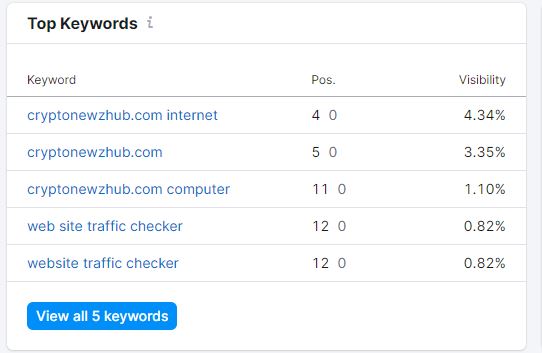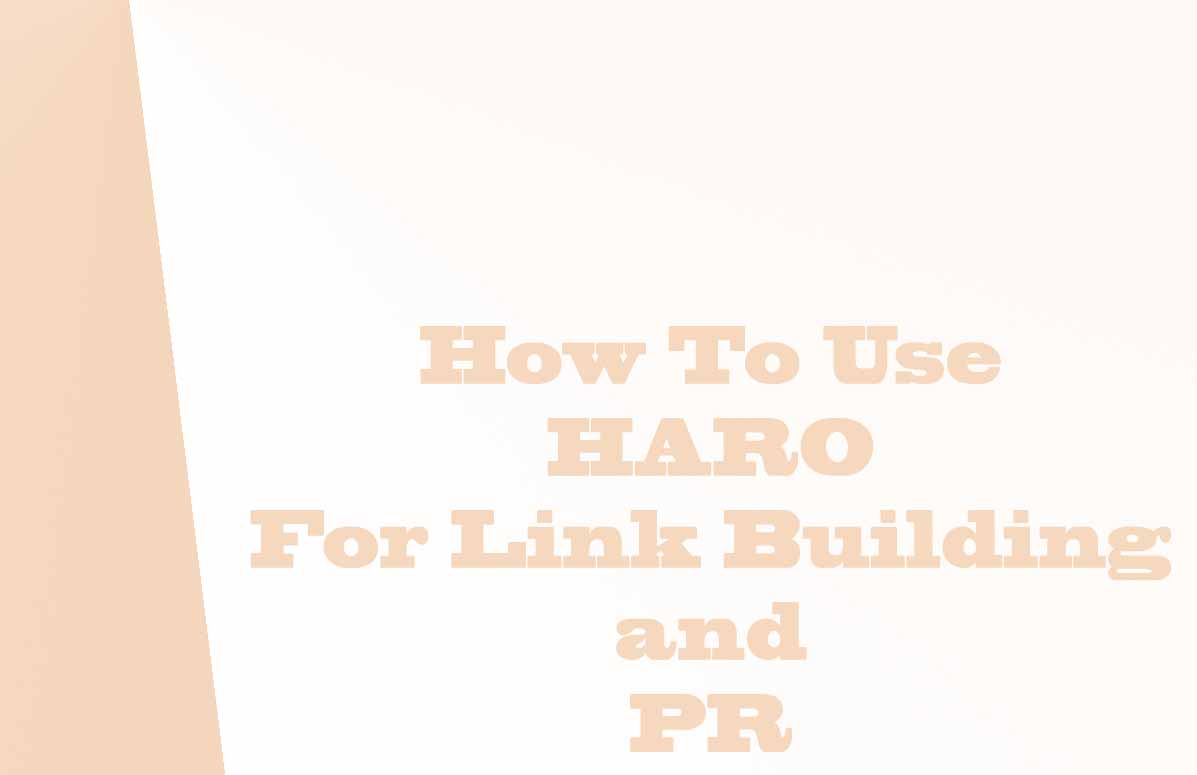
In the realm of SEO, the quest for high-quality backlinks is a cornerstone of successful digital marketing strategies. However, the true power lies in niche relevant backlinks, a potent tool for boosting website authority and driving organic traffic.
Understanding Niche-Relevant Backlinks
Niche-relevant backlinks are links from websites within the same niche as yours, serving as a testament to your website's credibility and relevance within its industry.
These backlinks play a pivotal role in enhancing search engine rankings and establishing domain authority.
How do I find out how many backlinks a website has?
There are several ways to find out how many backlinks a website has. Here are a few methods:
1. Use backlink analysis tools: There are various online tools that specialize in providing information about a website's backlinks. Some popular options include Ahrefs, SEMrush, Moz, Majestic SEO, Open Site Explorer and Lookkle Backlink Checker. These tools can give you detailed information about a website's backlink profile, including the number of backlinks.
2. Search engine operators: You can use search engine operators to get an estimate of a website's backlinks.
Enter the following command in the search bar of a search engine, replacing "example.com" with the website you want to analyze: "link:example.com". This will provide you with a list of web pages that link to the specified website. Although this is not a comprehensive count, it gives you an idea of the number of links.
3. Google Search Console: If you verify ownership of the website in Google Search Console (previously known as Google Webmaster Tools), you can access some data on backlinks. In the "Links" section, you will find some information about external websites linking to your website.
4. Online backlink checker tools: There are free online tools available that can provide a basic count of a website's backlinks. Just search for "backlink checker" and you will find several options. These tools may not offer in-depth analysis but can give you a rough estimate of the backlink count. Currently, Lookkle Backlink Checker is free.
Unleashing the Potential of Niche-Relevant Backlinks
1. Identifying Potential Niche Websites for Backlinking
Understanding your niche is crucial for pinpointing websites that share your focus.
Selecting the right websites for backlinks is akin to assembling a team of knowledgeable and relevant partners for a group project.
To identify potential niche websites similar to your website, you can follow these steps:
- Perform a Google search:
Start by searching for keywords related to your website's niche. Look for websites that appear on the first few pages of the search results. These websites are likely to be your competitors or similar niche websites. - Use online directories:
Explore online directories specific to your website's niche. These directories often catalog various websites within a specific industry or niche. Browse through the categories to find websites similar to yours. - Conduct competitor analysis:
Identify your top competitors and analyze their websites. Look for similarities in terms of content, design, target audience, and niche. You can use tools like SimilarWeb or Compete to uncover potential competitors and similar websites. - Leverage social media:
Search for hashtags or groups related to your niche on social media platforms like Twitter, Facebook, or LinkedIn. Explore the profiles of influencers, experts, or other websites sharing similar content in your niche. They might have their own websites or recommend other related websites. - Join online forums and communities:
Participate in online forums or community platforms related to your niche. Engage with members and look for website suggestions or recommendations shared by others. - Analyze related content:
Look for websites that publish similar content or address similar topics. Analyze their website structure, content strategy, and audience engagement to identify potential niche websites. - Use specialized search engines or directories:
Some niche-specific search engines or directories cater to particular industries or interest areas. Search using these platforms to find websites similar to yours. - Monitor backlinks:
Check the backlink profile of your website using tools like Lookkle Monitoring Tool. Look for websites linking to your site and visit them to see if they are similar in niche and could be potential partners or competitors. - Remember to evaluate the quality, relevance, and authority of potential niche websites to determine their suitability for collaboration or competition analysis.
2. Crafting Valuable Content for Link Building
In-depth guides, informative videos, and comprehensive tutorials are instrumental in naturally attracting niche-relevant backlinks.
Promoting high-quality content can amplify its reach and foster brand recognition beyond backlink acquisition.
Crafting valuable content for link building is essential for generating high-quality backlinks and improving your website's search engine rankings. Here are some tips to create valuable content for link building:
- Conduct Research:
Start by researching your target audience, industry trends, and popular topics. Identify the most relevant and popular keywords that align with your content goals. - Develop Unique Ideas:
Use your research findings to come up with unique and engaging content ideas. Make sure your ideas address your audience's pain points, provide solutions, or offer valuable insights. - Create High-Quality Content:
Craft well-written, informative, and engaging content that provides value to your readers. Use compelling headlines, incorporate visual elements like images or videos, and make your content easy to digest. - Optimize for SEO:
Implement on-page SEO techniques such as optimizing your titles, meta descriptions, headers, and incorporating relevant keywords naturally throughout the content. This will help search engines understand your content and improve its visibility. - Incorporate Visuals:
Including visual elements such as images, infographics, charts, or videos can make your content more engaging and shareable. Visual content tends to attract more backlinks compared to text-only content. - Provide Original Research or Data:
Conduct original research, surveys, or studies related to your industry. Sharing unique data or insights can attract attention from other websites and make your content more link-worthy. - Guest Blogging:
Write high-quality guest posts for authoritative websites and include relevant links back to your content. Ensure that the guest post provides value to the target website's audience and aligns with their content guidelines. - Outreach to Influencers:
Reach out to industry influencers or bloggers and offer your content for them to share or reference in their articles. Personalized outreach emails or direct messages can help establish relationships and increase the chances of earning backlinks. - Promote on Social Media:
Share your content across social media platforms to increase its visibility and encourage others to share it. Engage with your audience by responding to comments or questions, which can further improve your chances of earning backlinks. - Monitor Backlinks:
Regularly monitor the websites linking to your content using tools like Google Search Console or Lookkle Backlink Monitoring Tool. Identify any low-quality or spammy backlinks and disavow them if necessary.
3. Building Relationships for Link Acquisition
Establishing connections with authoritative sites in your niche is pivotal for securing niche-relevant backlinks.
Building relationships for link acquisition is an important aspect of search engine optimization (SEO) and can greatly improve a website's visibility and authority. Here are some strategies to help you build relationships for link acquisition:
- Identify relevant websites and contacts:
Start by identifying websites that are relevant to your industry or niche. Look for websites that have content similar to yours or have a target audience that aligns with your own. Identify key contacts within these websites, such as website owners, editors, or content managers. - Engage with industry influencers:
Identify and engage with influencers in your industry. Follow them on social media, share their content, and comment on their posts. By building a relationship with influencers, you increase your chances of them linking to your content or mentioning your website. - Guest blogging:
Reach out to relevant websites and offer to write guest blog posts for them. This allows you to showcase your expertise and provide valuable content to their audience. In return, you can request a link back to your website within the blog post or author bio. - Collaborate on content:
Collaborate with other websites or influencers to create content together. This could be in the form of interviews, case studies, or round-up posts. By collaborating, you not only build relationships but also increase the chances of getting links from their website to yours. - Offer testimonials or reviews:
If you have used a product or service from a website that is relevant to your industry, offer to provide them with a testimonial or review. This can be a win-win situation as you get a link back to your website, and the website owner gets valuable feedback and social proof. - Help others:
Offer to help other website owners or influencers in any way you can. This could be by providing them with resources, sharing their content, or helping them with their projects. By being helpful and supportive, you can build strong relationships that may lead to link opportunities in the future. - Attend industry events:
Attend industry conferences, seminars, or meetups to network with other professionals in your field. Building face-to-face relationships can be valuable in establishing link acquisition opportunities. Be proactive in exchanging contact information and follow up with relevant professionals after the event. - Build a resource page:
Create a resource page on your website that includes links to helpful and relevant websites in your industry. Reach out to these websites and inform them that you have included them in your resource page. They may reciprocate by linking back to your website as a valuable resource.
4. Leveraging Dedicated Backlink Platforms for High-Quality Links
Free Backlink Sites
According to SEO Chatter, several high Domain Authority sites offer free backlink opportunities. These include Crunchbase, MyBlogU, HARO, Google Sites, and WordPress.com. These platforms provide opportunities to acquire high-quality backlinks at no cost, contributing to improved website authority and search engine visibility
Buying Backlinks
Outreach Monks emphasizes the importance of thorough research when considering buying backlinks. While reputable backlink providers can offer high-quality links from authoritative sites, it's crucial to avoid low-quality backlink gigs that can potentially harm a website's SEO performance. The approximate cost of buying backlinks from reputable sources ranges from $300 to $2000 per backlink, reflecting the value of high-quality link building services
Link Building Services
Backlinko highlights the effectiveness of link building services, such as HARO, in acquiring high-quality backlinks. These services save time and effort by integrating tactics that bring quality backlinks to a domain. However, it's essential to avoid quick-fix deals and prioritize high-quality, white-hat link building strategies to maximize the benefits of purchased backlinks
Backlink Monitoring Tools
LinkBuilder.io provides insights into backlink monitoring tools that aid in managing link building campaigns. These tools, including Linkody, Monitor Backlinks, Majestic, and Linkio, offer functionalities such as tracking links, monitoring competitors for link building opportunities, and analyzing backlink profiles. These tools enable website owners to assess the effectiveness of their link building strategies and make informed decisions to enhance their backlink profiles
Best Link Building Opportunities
Travelpayouts emphasizes the significance of dedicated services that can help audit blog backlinks. Lookkle backlink checker, for example, offers a free service to check 700 backlinks to a blog, providing valuable insights into a website's backlink profile. Leveraging such tools can aid in identifying and optimizing backlink opportunities to enhance a website's SEO performance
The Impact of Niche-Relevant Backlinks on SEO
Niche-relevant backlinks serve as a testament to a website's credibility and expertise within its niche. These backlinks aid search engines in identifying credible sources of information, ultimately contributing to improved search engine rankings and organic traffic.
Niche-relevant backlinks can have a significant impact on a website's SEO. Here are some key factors to consider:
- Enhanced Relevance:
Niche-relevant backlinks indicate to search engines that your website is a trusted source within a specific industry or topic area. This helps search engines understand the relevance of your website to specific search queries. - Increased Organic Rankings:
Backlinks from niche-related websites can help boost your website's organic rankings on search engine results pages (SERPs). When search engines see that your website is being referenced by authoritative sources within your niche, they view it as a sign of quality and credibility. - Targeted Traffic:
Niche-relevant backlinks can drive targeted traffic to your website. Visitors coming from these sources are likely to be interested in the content or products/services you offer within your niche. This can increase the chances of conversions and customer engagement. - Improved Domain Authority:
Backlinks from reputable niche-related websites can contribute to improving your website's domain authority. Domain authority is a metric that search engines use to evaluate the overall quality and trustworthiness of a website, which can impact its visibility in search results. - Social Proof and Trust:
Having niche-relevant backlinks from reputable websites can serve as social proof, signalling to users and search engines that your website is trustworthy and authoritative within your niche. This can positively impact user trust, engagement, and credibility. - Long-term Benefits:
Niche-relevant backlinks are generally more sustainable compared to unrelated or low-quality backlinks. These links are more likely to stay active and continue driving traffic and authority to your website over time, ultimately improving your SEO efforts in the long run.
The Future of Niche-Relevant Backlinks
As the digital landscape continues to evolve, the role and impact of niche-relevant backlinks are poised to undergo further transformations. Predicted trends and shifts in the realm of SEO underscore the enduring significance of niche-relevant backlinks in shaping the digital marketing landscape.
The future of niche-relevant backlinks is poised to continue evolving and becoming increasingly important in the search engine optimization (SEO) landscape. As search engines become more sophisticated, they are placing greater emphasis on relevance and quality rather than quantity alone.
Niche-relevant backlinks refer to links that are earned from websites in the same or closely related industry or niche as the target website. These backlinks signal to search engines that the target website is an authority in the specific niche, thus improving its rankings for relevant keywords.
- Enhanced search engine algorithms:
Search engines like Google are continuously improving their algorithms to deliver more relevant search results. They are increasingly able to assess the authority and relevance of a website based on the quality and context of the backlinks it has. Niche-relevant backlinks will play a significant role in determining the relevance and quality of a website. - Relevance and authority indicators:
As search engines become more adept at assessing relevance and context, niche-relevant backlinks will carry more weight in determining a website's authority within a specific niche. Websites that have a higher number of backlinks from trusted and relevant sources will gain a competitive advantage over those with more general or unrelated backlinks. - Focus on user experience:
Search engines are putting more emphasis on user experience when ranking websites. Niche-relevant backlinks can contribute to a better user experience by guiding users to other reliable and relevant sources of information within the same industry or niche. This increases the overall credibility and trustworthiness of the target website. - Natural link building:
The future of backlinks lies in natural link building, where websites earn links organically by producing high-quality content and engaging with their target audience. Niche-relevant backlinks will be more valuable in this process as they are more likely to be earned naturally in the course of building relationships within the same industry or niche. - Contextual relevance:
In addition to niche relevance, contextual relevance will also continue to gain importance. Backlinks from websites that provide relevant and contextual information within the same niche will carry more weight in search engine rankings. The future will see a shift towards websites seeking these types of highly relevant and contextual backlinks to establish their authority within a specific topic or area.
Conclusion
In conclusion, the strategic acquisition of niche-relevant backlinks is a cornerstone of effective link-building endeavors.
By leveraging the power of niche-relevant backlinks, websites can fortify their authority, enhance search engine visibility, and drive organic traffic within their respective niches.
Tips on SEO and Online Business
Next Articles
Previous Articles














